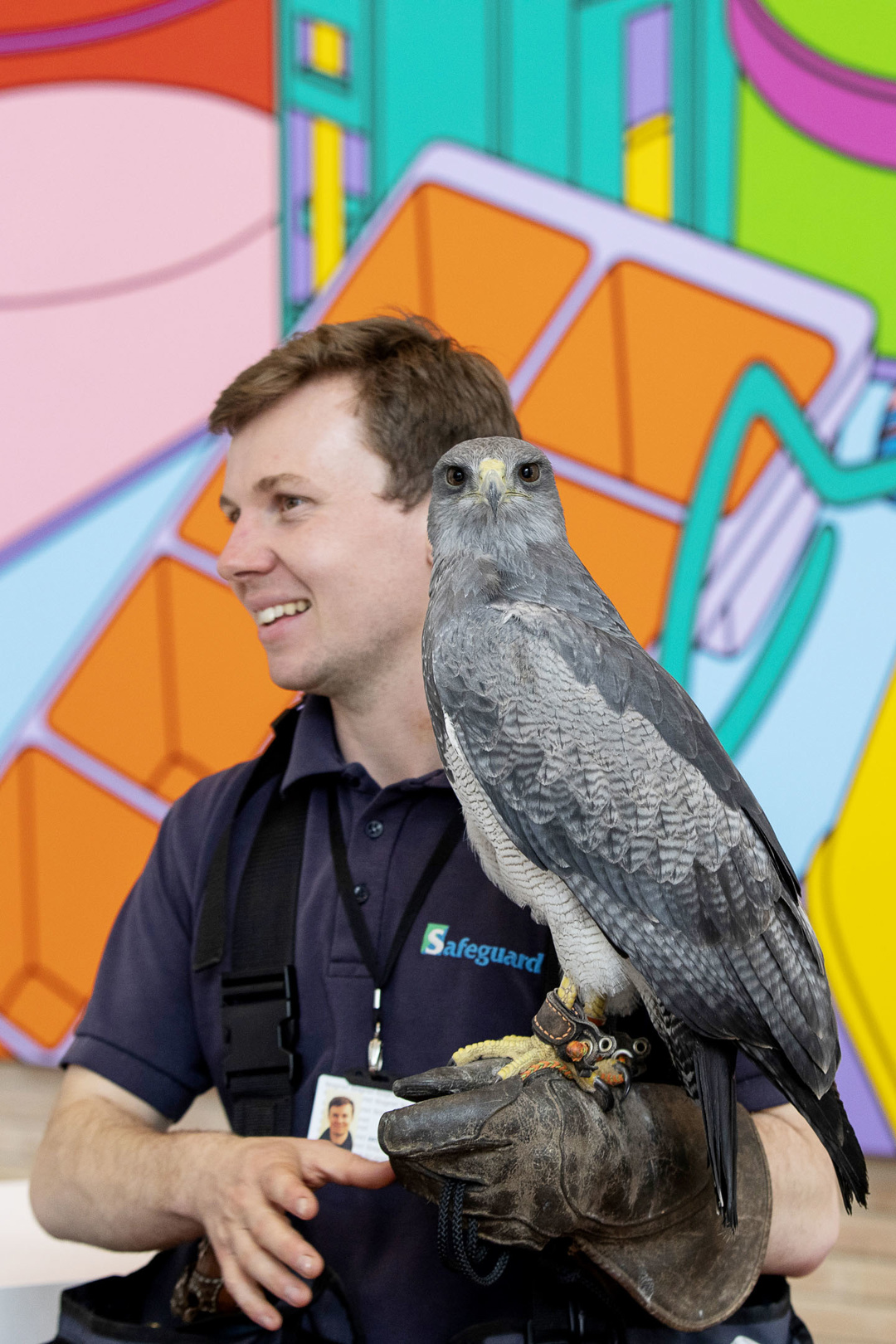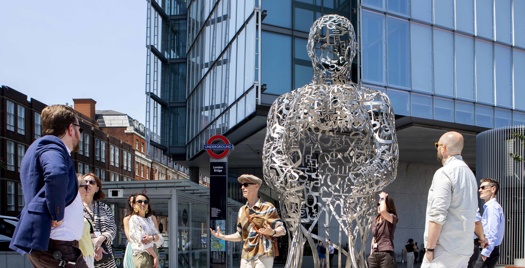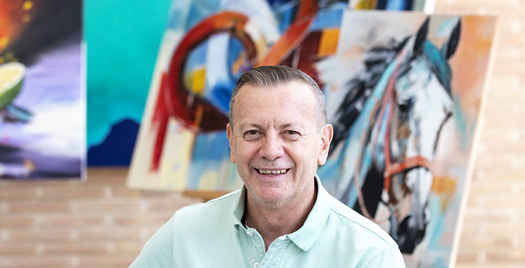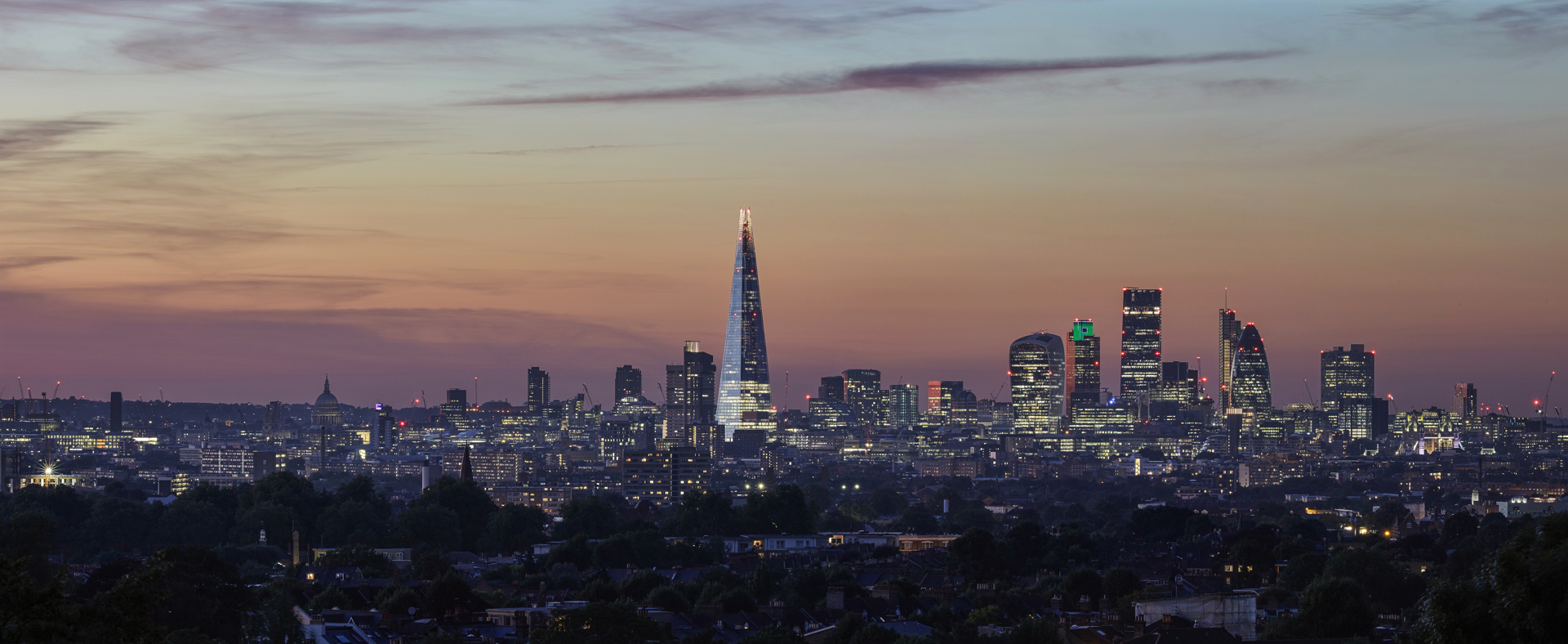Meet Ross Hicking, founder of London Falconry, and Guido, the Chilian blue eagle
Soar high above London’s refuse workers and street sweepers to discover a team of winged specialists also keeping the capital clean. Soar high above London’s refuse workers and street sweepers to discover a team of winged specialists also keeping the capital clean.
Each day, birds of prey are dispatched to naturally deter gulls and pigeons from the city’s landmarks.
Among them is Guido, a seven-year-old Chilian blue eagle, who keeps The Shard pest free with the help of his colleague Wetherby the Harris Hawk.
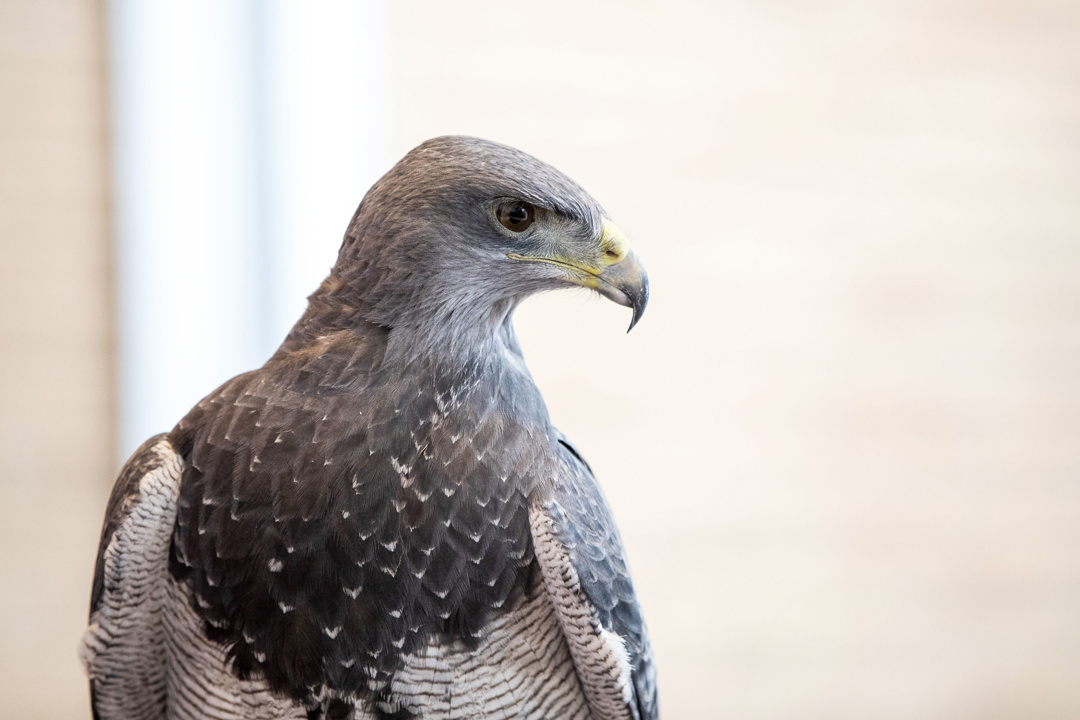
Battle for the skies
Bird clearance is about safety as well as mess, explains his handler and the founder of London Falconry, Ross Hicking, 28.
“During nesting season, gulls are defensive of their nests and will dive bomb window cleaners and maintenance workers,” he says.
The birds’ work is vital to the team that looks after the exterior of The Shard, the UK’s tallest building. It protects them as they abseil from heights of 310 metres and operate the cleaning cradles that crawl up and down the glass.
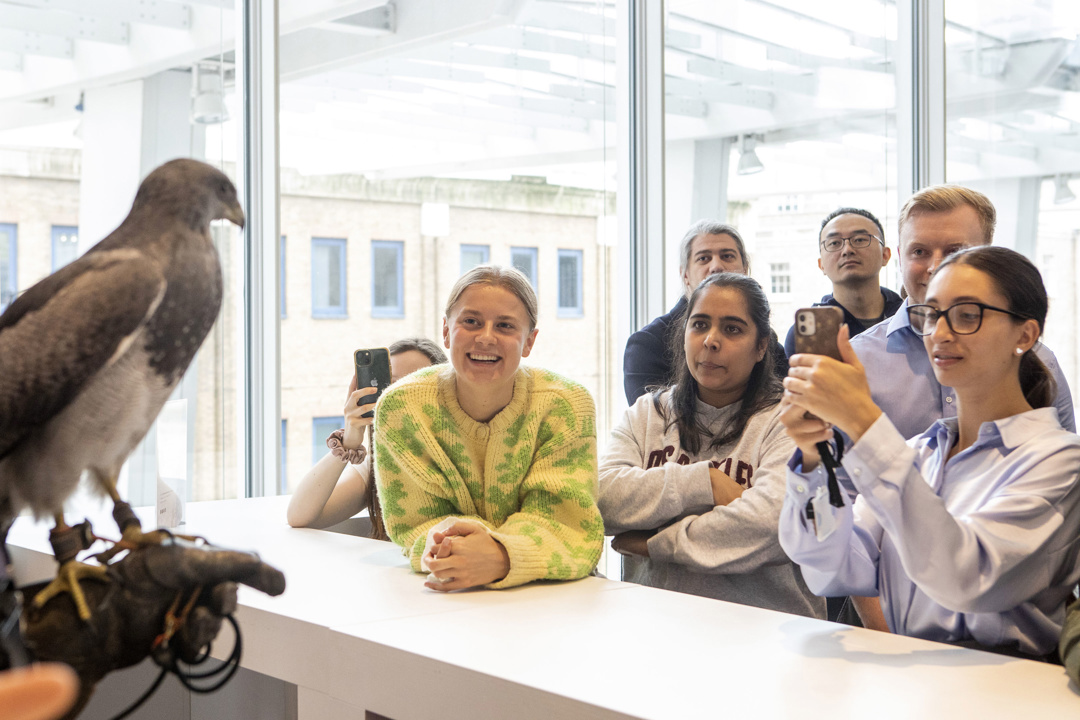
From birthday present to passion
A thirteenth-birthday falconry experience led Ross to one of the most unusual roles in London’s upkeeping. Enamoured with the birds, he volunteered at the centre during weekends and school holidays.
“Birds of prey are still wild animals, but you build a relationship with them. You can give them a perfect life if you fly them daily and let them hunt,” he says.
Ross founded London Falconry at age 19, specialising in bird clearance and educational displays. Today, he has nine birds, including two rescue owls, that live in spacious aviaries on the edge of Ashdown Forest, part of the High Weald Area of Outstanding Natural Beauty in East Sussex.
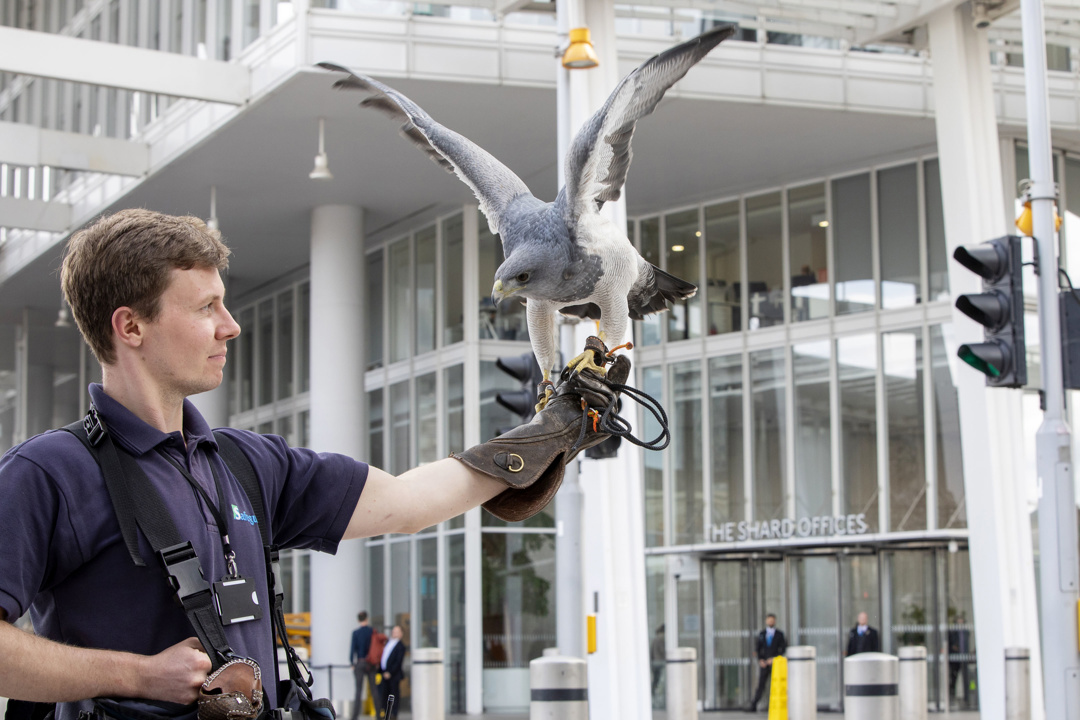
Never fed up
The job is demanding, starting with an early morning weigh-in for each bird. If it has eaten too little, it will get distracted. If it is still digesting a large meal, it will refuse to move.
This last behaviour is the origin of the phrase ‘fed up’, one of many modern sayings derived from falconry, thanks in part to amateur falconer William Shakespeare. Others include ‘to wrap around your little finger’ and ‘under the thumb’, which refer to the leash a falconer wraps around their finger/s to keep control of the bird.
Weigh-in complete, Ross drives the birds to fly around different buildings, where their presence deters other species. His work takes him from public spaces to landmark buildings and airports, where bird clearance prevents jet engine accidents.
“The hawk’s presence tells other birds it’s not a safe place to nest. It’s a natural way to encourage them to move elsewhere,”Ross Hicking
Back at the aviaries, Ross and his team of falconers exercise any birds that have not flown that day – every bird gets a three-month rest period each year to moult. At weekends, the birds hunt in the Sussex countryside, helping local landowners clear invasive species like grey squirrels.
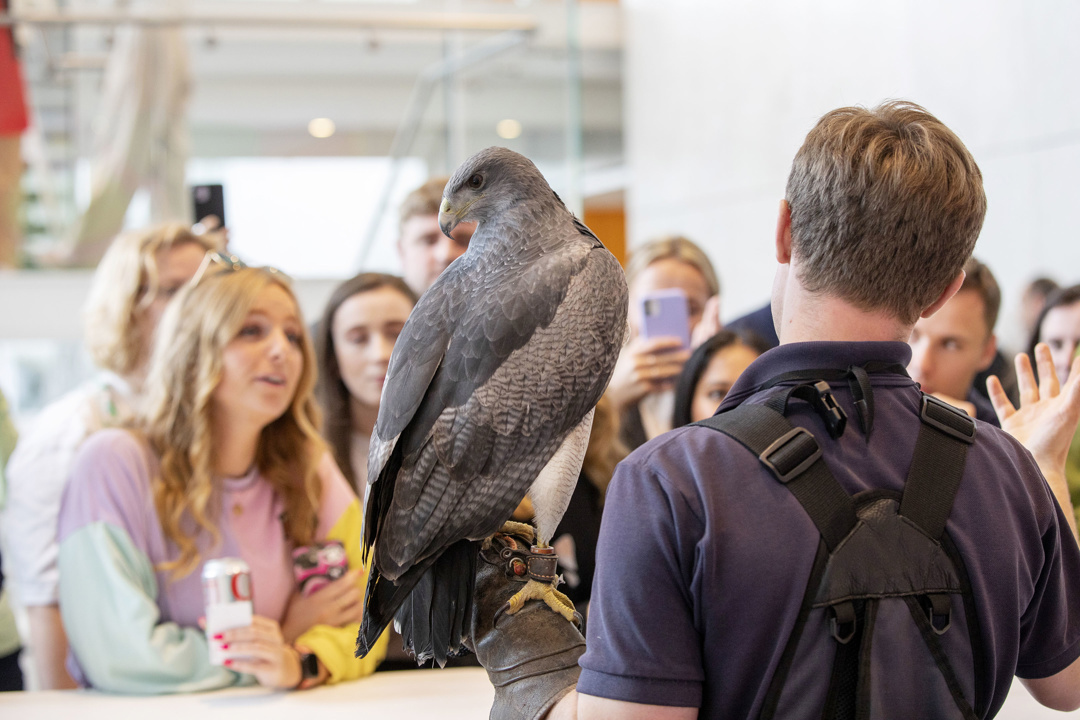
The highs and lows of falconry
One of the best parts of Ross’s job is seeing nature thrive in an urban environment.
“Sometimes office workers don’t realise there’s a nature documentary playing in front of their window,” he says.
Guido’s reactions often alert Ross to spectacular displays, such as the female peregrine resident of Guy’s Hospital knocking crows out of the sky for attacking her chicks.
“London and New York are now the best places in the world to see wild peregrines,” he adds.
A disheartening part of his job is having to rescue birds of prey from ill-equipped owners. Recently, he collected two Eurasian eagle owls that were confined to a front room.
“People don’t realise that eagle owls can live for sixty years and training is required to care for them properly. The females can grow to a total length of 75cm – the height of a large dog.
“It’s tough because the ownership laws are quite lax for birds that aren’t native or endangered,” he says.
A unique bond
Ross has had Guido since the bird was 14 days old. He is an imprint (human-reared), often an intervention when a chick is endangered by its parents or siblings – in this case, Guido was determined to eat his sister.
Working birds of prey are trained to return to their handlers through positive reinforcement (meat!) from an early age. Guido started training at one-and-a-half months and was fully grown – with a wingspan of five feet – by three months.
Imprints often don’t realise their handler is a different species, and Guido regularly builds Ross a nest, which is presented with a bow of the head and a chirp. The bigger gift is giving Ross and his team the opportunity to keep the ancient art of falconry alive.
